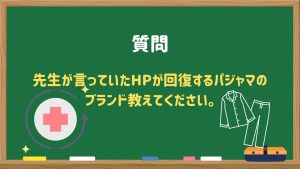こんにちわ。先生。です。
今回は第1文型について説明します。
この記事では第1文型のイメージをつかむための例文と、暗記すべき自動詞の語法の演習問題を用意しました。
積極的に取り組んでみてください。
第1文型とは
英語の自動詞(intransitive verb)とは、主語が自らの動作や状態を表す動詞のことです。通例、自動詞はSの存在・移動・変化を表します。必ずしも明確に分ける必要はないですが、例文を使ってその動詞の意味とともに第1文型のもつイメージを感じるとよいでしょう!
「arrive(~に着く)「run(~へ走る)」、「sleep(~で眠る)」、」などが自動詞です。動詞を訳したときに「~を」以外(「~に」「 ~へ」「~と」など)になるものは自動詞になりやすい傾向があります。
S V (M) :Mには副詞がくる
① Sが存在する(Sがいる、ある)
② Sが変化する
③ Sが移動する
練習問題
文型を意識して和訳せよ
- Does God exist?
- I am here.
- That book is on the table.
- That eraser lies on the shelf.
- That vase sits on the table.
- He stood at the bus stop.
- That car parked in the garage.
- The stars are twinkling in the night sky.
- This plant grew rapidly.
- The price of gas increased by 10% last month.
- This river flows into the ocean.
- This train pulled into the station.
- His balloon rose to the sky.
- My smartphone fell to the floor.
- That boat sailed across the sea.
- That crowd surged toward the stage.
- The children ran along the beach.
[解答]
- Does God exist?「神は存在しますか?」(存在)
- I am here. 「私はここにいます。」(存在)
- That book is on the table. 「あの本はテーブルの上にある。」(存在)
- That eraser lies on the shelf. 「あの消しゴムは棚の上にある。」(存在)
- That vase sits on the table. 「あの花瓶はテーブルの上にある。」(存在)
- He stood at the bus stop. 「彼はバス停に立っていた。」(存在)
- That car parked in the garage. 「あの車はガレージに駐車してあった。」(存在)
- The stars are twinkling in the night sky. 「星たちは夜空で輝いている。」(変化)
- This plant grew rapidly.「この植物はすぐに成長した。」(変化)
- The price of gas increased by 10% last month. 「ガソリンの値段は先月10%上がった。」(変化)
- This river flows into the ocean. 「この川は海に流れ込む。」(移動)
- This train pulled into the station. 「この列車が駅に到着した。」(移動)
- His balloon rose to the sky. 「彼の風船が上昇して空に向かった。」(移動)
- My smartphone fell to the floor. 「僕のスマホが床に落ちた。」(移動)
- That boat sailed across the sea. 「あのボートは海を渡っていった。」(移動)
- That crowd surged toward the stage. 「あの群衆がステージに向かって押し寄せた。」(移動)
- The children ran along the beach. 「子供たちが浜辺を走り回った。」(移動)
暗記が必要な自動詞の語法

まずは22個!
単語の意味と前置詞を覚えてね。
- agree with A: (個人的に)Aに賛成する
- apologize to A for B: AにBのことで謝る
- apply for A: Aに応募する
- approve of A: Aに賛同する
- belong to A: Aに所属する
- complain about A: Aについて不平を言う
- concentrate on A: Aに集中する
- consist of A: Aから構成されている
- cope with A: Aに対処する
- deal with A: Aに対処する
- depend on A: Aに頼る
- get to A: Aに着く
- graduate from A:Aを卒業する
- interfere with A: Aの邪魔をする
- major in A:Aを専攻する
- object to A: Aに反対する
- participate in A: Aに参加する
- refer to A: Aについて言及する
- result from A: Aに起因する(Aから結果として起こる)
- result in A: Aに帰着する(Aという結果に終わる)
- succeed in A: Aに成功する
- suffer from A: Aに苦しむ
例文
- I completely agree with your proposal.
(私はあなたの提案に完全に同意します。)
- I need to apologize to my neighbor for my dog barking loudly last night.
(昨晩、私の犬が大きな音で吠えたことで、ご近所の方にお詫びする必要があります。)
- I applied for a job at the new restaurant in town.
(町の新しいレストランで仕事に応募しました。)
- Our team approves of the new project plan.
(私たちのチームは新しいプロジェクト計画に賛成しています。)
- He belongs to the basketball club at school.
(彼は学校のバスケットボールクラブに所属しています。)
- She often complains about her long commute to work.
(彼女は通勤が長いことについてよく不満を言います。)
- I need to concentrate on finishing this report before the deadline.
(私は締め切り前にこの報告書を完成させるために集中する必要があります。)
- The cake consists of flour, sugar, eggs, and butter.
(そのケーキは小麦粉、砂糖、卵、バターから構成されています。)
- She needs to learn how to cope with stress in a healthy way.
(彼女は健康的な方法でストレスに対処する方法を学ぶ必要があります。)
- We need to deal with this customer complaint as soon as possible.
(私たちはこの顧客の苦情にできるだけ早く対処する必要があります。)
- I always depend on my friend for advice when I have a problem.
(問題がある時はいつも友達の助言に頼っています。)
- I need to leave early if I want to get to the airport on time.
(時間通りに空港に着きたければ、早めに出発する必要があります。)
- She graduated from college and now works as a doctor.
(彼女は大学を卒業し、今は医師として働いています。)
- The noise from the construction site is interfering with my ability to work.
(建設現場からの騒音が私の仕事の能力に干渉しています。)
- He majored in psychology at university and became a clinical psychologist after graduation.
(彼は大学で心理学を専攻し、卒業後は臨床心理士になりました。)
- She objects to the new company policy.
(彼女は新しい企業政策に反対しています。)
- He plans to participate in the charity run next month.
(彼は来月のチャリティーランに参加する予定です。)
- The article refers to the latest research on climate change.
(その記事は気候変動の最新の研究について言及しています。)
- The accident resulted from a mechanical failure in the car.
(事故は車の機械的な故障から起こった。)
- The negotiations resulted in a new agreement between the two companies.
(交渉の結果、2社間に新しい合意が成立しました。)
- She finally succeeded in passing her driver’s license test.
(彼女は運転免許試験に合格することについてついに成功しました。)
- He suffers from a chronic back pain that affects his daily life.
(彼は慢性的な腰痛に苦しんでおり、日常生活に影響を与えています。)
演習問題
適切な前置詞を入れよ。
- apologize ( ) A ( ) B :AにBのことで謝る
- agree ( ) A :(個人的に)Aに賛成する
- belong ( ) A :Aに所属する
- get ( ) A :Aに着く
- suffer ( ) A :Aに苦しむ
- concentrate ( ) A :Aに集中する
- depend ( ) A :Aに頼る
- refer ( ) A :Aに言及する
- deal ( ) A :Aに対処する
- succeed ( ) A :Aに成功する
- object ( ) A :Aに反対する
- result ( ) A :Aに帰着する(Aという結果に終わる)
- result ( ) A :Aに起因する(Aから結果として起こる)
- cope ( ) A :Aに対処する
- apply ( ) A :Aに応募する
- complain ( ) A :Aについて不平を言う
- approve ( ) A :Aに賛同する
- interfere ( ) A :Aの邪魔をする
- participate ( ) A :Aに参加する
- consist ( ) A :Aから構成されている
- graduate ( ) A :Aを卒業する
- major ( ) A :Aを専攻する
解答
- apologize (to) A (for) B: AにBのことで謝る
- agree (with) A: (個人的に)Aに賛成する
- belong (to) A: Aに所属する
- get (to) A: Aに着く
- suffer (from) A: Aに苦しむ
- concentrate (on) A: Aに集中する
- depend (on) A: Aに頼る
- refer (to) A: Aに言及する
- deal (with) A: Aに対処する
- succeed (in) A: Aに成功する
- object (to) A: Aに反対する
- result (in) A: Aに帰着する(Aという結果に終わる)
- result (from) A: Aに起因する(Aから結果として起こる)
- cope (with) A: Aに対処する
- apply (for) A: Aに応募する
- complain (about[of]) A: Aについて不平を言う
- approve (of) A: Aに賛同する
- interfere (with) A: Aの邪魔をする
- participate (in) A: Aに参加する
- consist (of) A: Aから構成されている
- graduate (from) A: Aを卒業する
- major (in) A: Aを専攻する
まとめ
自動詞は数が多いです。くじけそうになった人もいると思います。
覚えることは多いけど、どれも試験にはよくでます。少しずつ少しずつ自動詞の語法を覚えていってください。
解説してほしい英文法の事項があれば、コメントください。
それ以外の質問もOKです。












コメント